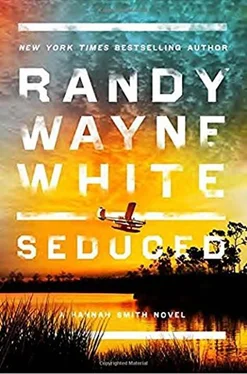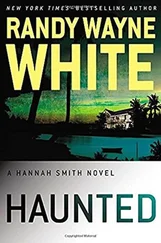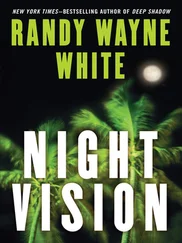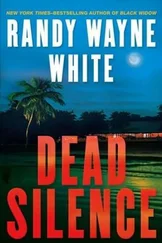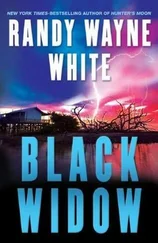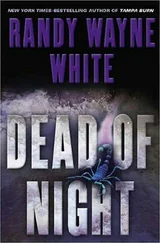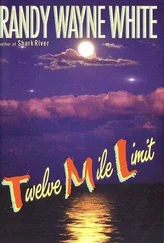“Would you mind some company? I can stop on the way and bring food. Oh-and I need Lonnie’s cell number, if you have it. I think she wanted to charter my boat but changed her mind for some reason.”
After a silence, he replied, “That woman don’t fish for nothing unless it wears pants, and it’s too cold to fish anyway. What’s wrong, makes you want to speak with her?”
“That’s what I need to find out. Do you know a man named Sabin Martinez?”
“’Course I do, but I ain’t seen him in near a month. I can’t say why that’s a worry to me… or maybe Beano paid a visit to you and your ma. Is that what happened? I’d be pleased if he paid you a call.”
“You call him Beano?”
“Twenty years or more, that’s what the governor called him. Sabe, sometimes, but Bin don’t fit the man. As a chauffeur, of course, I’ve got to be more formal. Call him Captain Martinez, or Mr. sometimes, depends on the formality of the situation. Reckon you’d sound happier, Miz Hannah, if Beano had spoken to you. But wait… he must’a, ’cause how else you know his name?”
“Was he supposed to stop by your place? He strikes me as the type who travels a lot.” This confused the chauffeur, so I explained, “It worries you, you said, not seeing him for a while. We can talk about it-I’ll pick up some barbecue on the way. Or would you prefer I make sandwiches?”
Before we hung up, I reminded him, “How about Lonnie’s number?”
“The woman don’t speak to me unless she needs something or wants to holler about how useless I am. You could try the house, I suppose.”
“Stop by and see her, you mean?” The Chatham ranch was only a mile or two out of the way.
“I wouldn’t advise no person to do that-not on a Sunday. You got something to write with? I’ll give you the private number to the house.”
Double-wing gates were open beneath the wrought iron crest of Chatham’s Triple C Ranch. I hadn’t planned on turning into the drive, but I did. It was one of those snap decisions that requires a certain stubbornness of mood. Anger helped. Lonnie Chatham had told Kermit she wanted to speak with me. Fine. I’d tried to call-no answer, no message machine-so here I was.
I went through a rehearsal, while the asphalt lane wandered between mossy oaks and pasture where horses grazed, a mahogany-stained barn in the distance. Aloof and professional, I pictured myself, impervious to insults, or snubs, and all other childish behavior. I was here as a professional courtesy, after all. Did she want to charter my boat? I saw myself baiting the woman by offering the names of competent guides, then counseling her, It’s wise to be careful. The fact that a person owns a boat doesn’t guarantee a satisfying day on the water.
No… the word satisfying was out. There were too many connotations to satisfying that might lead the conversation into awkward areas. For more than thirty years, Loretta and Mr. Chatham had kept their affair secret, but there was no telling what kind of snooping Lonnie had done since the man’s death. What if she knew? How would she react when she saw me, Loretta’s daughter? How would I handle it?
Calmly. Business-like. The ex-cheerleader could make a fool of herself if she wanted, but I would remain unshakeable.
The fact that the ex-cheerleader might also be guilty of murdering a football player named Raymond Caldwell was something I didn’t want to factor in. The thought was in my mind, though, when the drive broadened into a circle. Ahead was a long carport for guest parking, but it was empty. To my right was the barn. It was sided with beveled cypress. The wood glistened like amber beneath a gambrel roof of copper sheathing. Pasture, defined by a mile of painted fence, spread away toward the Peace River, where water sparkled beneath the shade of trees and Spanish moss.
This wasn’t just a working ranch. It was an estate built for entertaining millionaires.
My confidence stumbled. I parked anyway and followed a path, lined with scarlet bougainvillea, past a tennis court, to the main house. It was a three-story mansion, built of timbers, with balconies and skylights and high, wooded walkways, so life could be lived inside or out. The mark of Harney Chatham was in all the Western rodeo detail: branding irons and ornate terra-cotta tiles; the main entrance was a set of massive timber doors; there was a doorbell, and also a heavy horseshoe knocker.
I tried both, which produced only an echoing silence within. Strange. On a place this size, there had to be hired help somewhere, but I’d yet to see a soul. Again, I banged the heavy knocker. Nothing.
Admittedly, I was relieved. I went down the steps faster than needed. When I was on the walkway, shielded by scarlet blossoms, a vehicle started somewhere nearby; tires spun in sand, yelped when they found asphalt, then sped toward the gate.
A truck, it sounded like, but the vehicle was gone by the time I got to the parking area.
Lonnie Chatham, however, was there. She was adjusting the collar of her blouse after exiting the barn, the double doors open wide to the shady space within. Inside was a tractor and other mowing equipment. Plenty of room to hide a car, or a truck. I got the creepy feeling she had been interrupted again and it was her lover’s vehicle I’d heard.
I waited by my SUV. She pretended to be unaware of my presence until, finally, she did a perturbed double take. “Excuse me-do you have an appointment?”
I replied, “I was told you were trying to get in touch with me, Miz Chatham. I called earlier. There was no message machine, and I happened to be in the area anyway, so-”
“Who are you?”
Did she really not remember our meeting on the day Harney Chatham died? Highly unlikely, but I played along and introduced myself. Her three-fingered handshake communicated distaste-until a look of reappraisal registered, as did my name. Everything changed. Suddenly, she was delighted to meet me. “You’re the fishing guide! I’m so sorry. My husband was very fond of you, Hannah. And Harney wasn’t a man given to compliments. Not in private anyway.” There was a wink in her delivery.
I’d expected a confrontation, not a welcoming smile, or a gracious attempt at an embrace, which I fumbled badly. We nearly conked heads.
Laughing, she said, “I wish Harney could see the two of us together. Finally, after all these years. We’re going to miss that man, aren’t we? All his friends will. Especially us female admirers, huh?” There was another wink, the way this was said.
“I didn’t know your husband well, but he was always kind to me.”
“Oh, I bet he was! That Harney, he knew how to work a room of adoring women. Would you like some iced tea? Come on”-she directed me toward the barn-“let me give you the nickel tour. If you brought a jacket along, I’d grab it. We have a lot to talk about.”
This was all very strange. The woman obviously had a reason for pretending we were new bosom buddies. There must be something she wanted from me…
I followed her, saying, “Talk about what, Mrs. Chatham?”
“Call me Lonnie, and don’t play coy. You know-and, if you don’t, then I’ll have the fun of telling you-Harney said you were good at doing that Southern thing. Same with him: his good ol’ boy act. He’d pretend not to understand some complex issue when, in fact, he was the smartest guy in the room. Smart enough to listen until he knew damn well where everyone stood.”
She spun around. “And I suspect it’s the same with you, isn’t it, dear? Are you saying you don’t know that Harney left you half of our citrus groves in his will?”
That threw me. I couldn’t hide the truth. It was in my reaction.
Читать дальше
